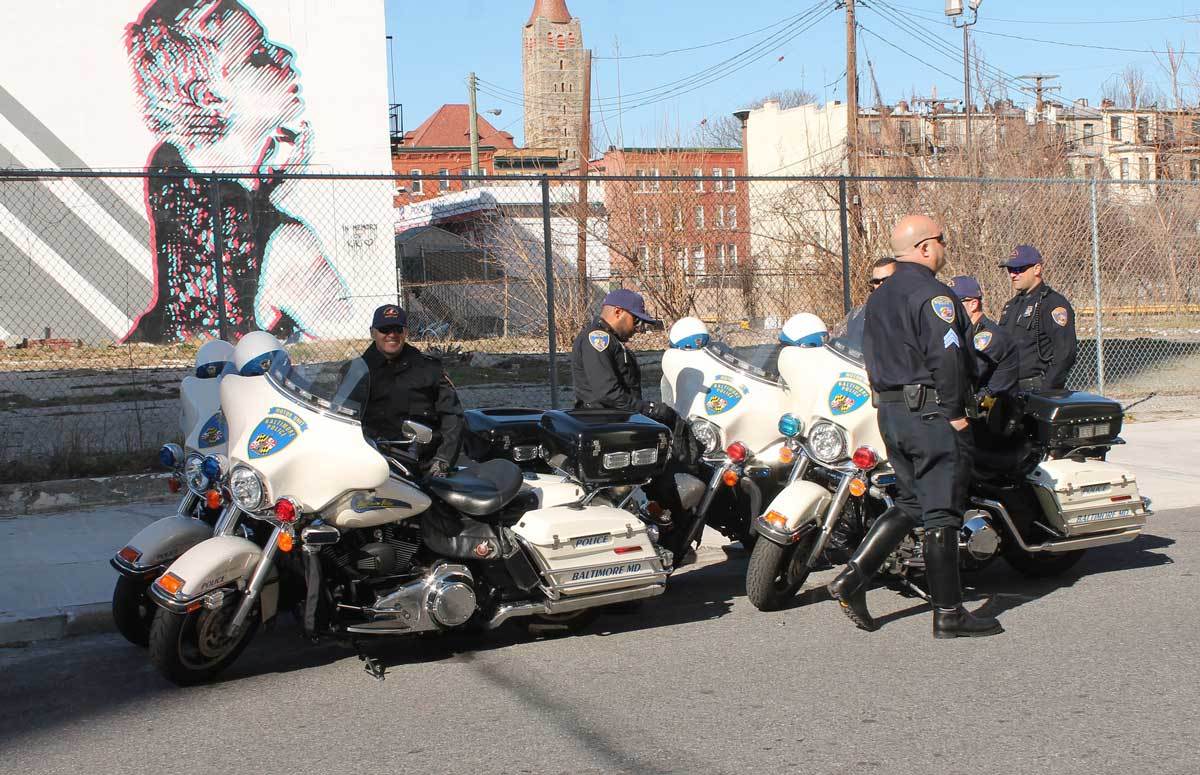
After a federal jury convicted two of the eight Baltimore detectives on the Gun Trace Task Force for their roles in the one of the biggest police corruption scandals to hit the city, many city leaders are using the verdict as a way to boost reform efforts and community trust.
Detectives Daniel T. Hersl and Marcus R. Taylor were found guilty of racketeering, racketeering conspiracy, and robbery. They and the other six officers who pled guilty to the charges—Detectives Evodio Hendrix, Jemell Rayam, Maurice Ward, Momodu Gondo, Sgt. Thomas Allers, and Sgt. Wayne Jenkins—were said to have used their power and position to steal large amounts of money from residents.
“Our job moving forward is to earn back the trust and response of the community,” said acting police commissioner Darryl De Sousa in a statement. “It will be a process and I understand the doubt, fear and pessimism.”
De Sousa announced last week that the BPD will begin giving members of specialty units random polygraph tests, as well as extensive overtime audits to put “checks and balances in place.”
According to associate professor of law at the University of Baltimore David Jaros, this level of police corruption is a rarity, but is not the first of its kind. The Rampart scandal in Los Angeles in the late 1990s involved 70 police officers in the Community Resources Against Street Hoodlums (CRASH) anti-gang unit of the LAPD who were accused of misconduct. It cost the city of Los Angeles $125 million in settlements and also resulted in 106 prior criminal convictions to be overturned. Jaros fears the same could happen in Baltimore.
“There is a historical comparison to be made there,” Jaros said. “It’s too soon to tell whether or not this will mean that some deep structural, fundamental changes will happen. The role of things like police contracts and unions come into play. Their job is to protect the officers, but at some point, they are working counter to the interest of all of the good officers on the force. And they’re simply blocking effective reform.”
“Transformative reform” is the solution that Jaros believes will effect change in Baltimore’s criminal justice system. He says it begins with the law enforcement officers’ bill of rights, which include protections that far exceed the treatment that a typical defendant would receive. For example, officers are often given multiple days before they are questioned and have the ability to review some of the paperwork and even videos before giving a statement. In other words, these contracts allow certain leniencies for police officers and need to be tweaked.
“Is the institution so rigid that you can’t make changes outside of knocking it down and rebuilding it?” Jaros asked. “There’s something highly problematic about having police officers who cannot be removed from the force. How do we create fair and effective protections for good officers, but give enough flexibility to fire bad officers? I just wish the system more often treated everyone else the way that police officers are often treated.”
Cases like these fundamentally challenge the ability of the criminal justice system to operate, he says, adding that the misconduct of the officers has become a threat to the police department and the ability of the city to fight crime. There has even been speculation that multiple complaints to the State’s Attorney’s Office about misconduct went unacknowledged, further igniting rumors of collusion between the departments.
“Once there becomes a cloud of mistrust over the testimony of police officers in court, the ability of the system to prosecute crime really falls apart,” he said. “The degree in which we can be confident that we are excising whatever is going on, will really decide where this goes.”
